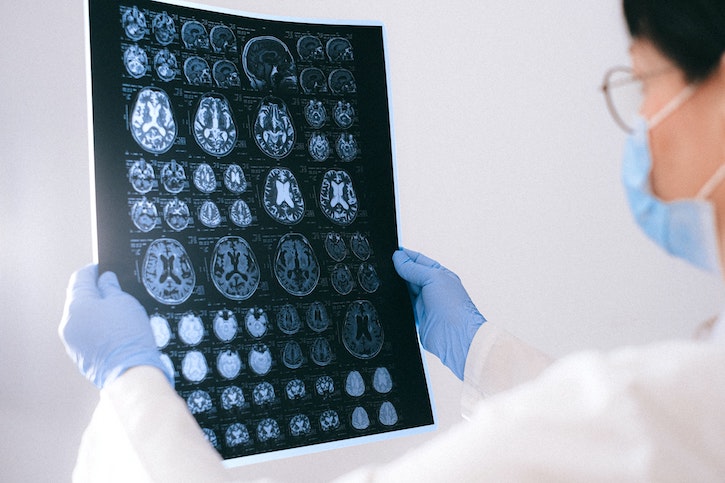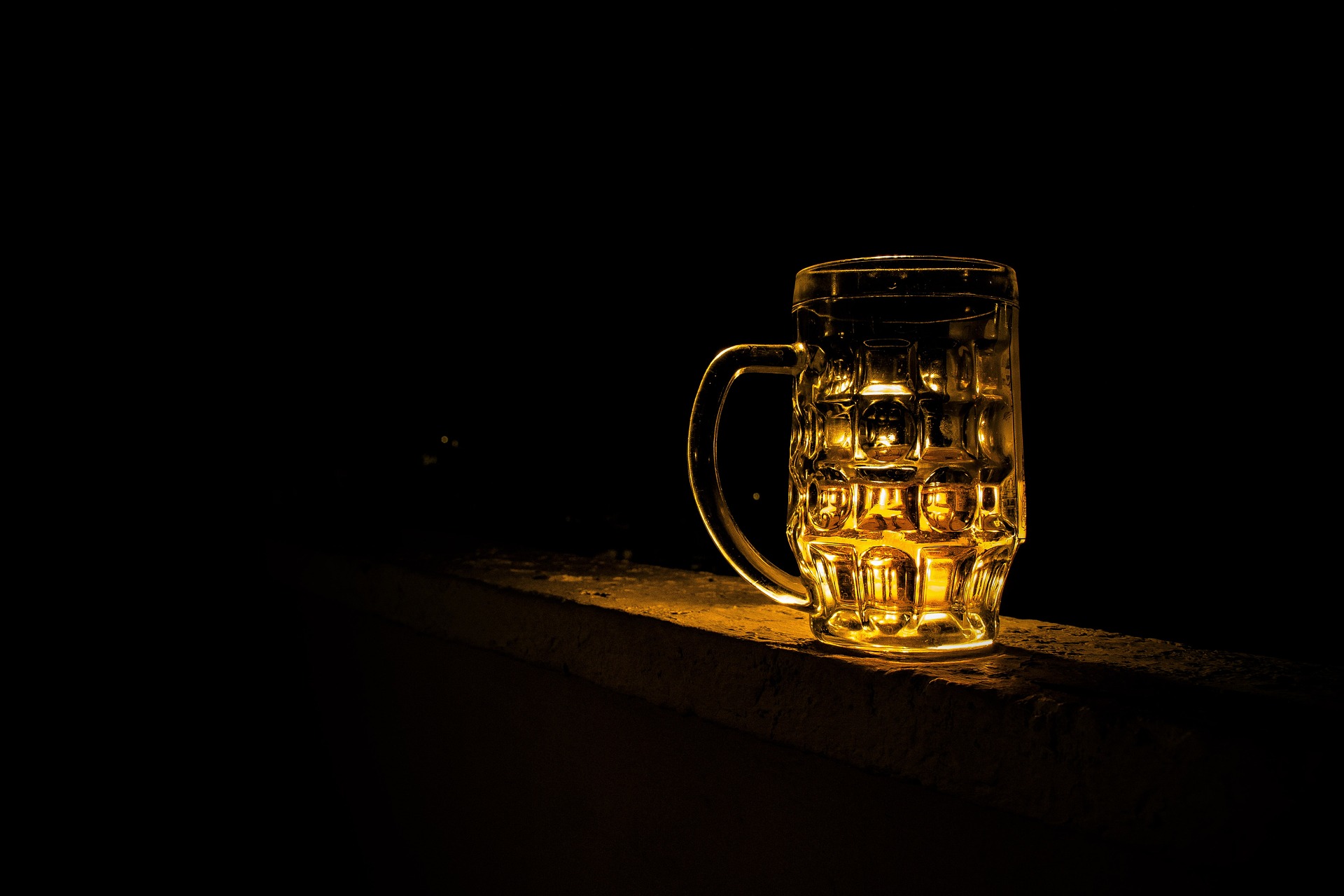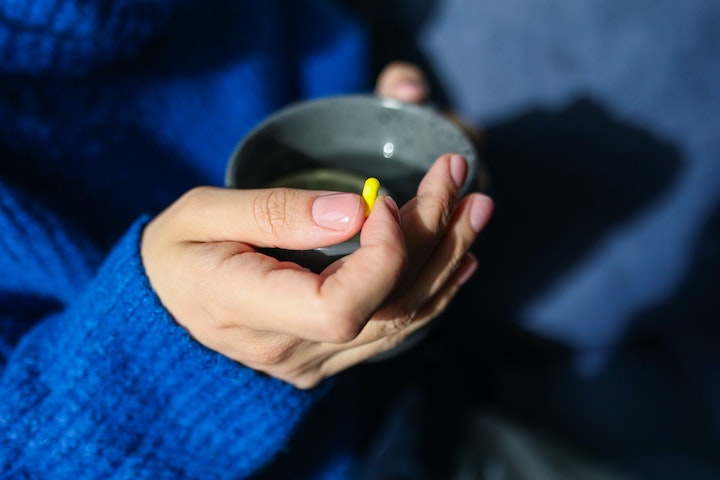If a loved one is experiencing alcohol addiction, it’s easy to assume this person is choosing to inflict harm upon him or herself. The reality, however, is that those experiencing alcohol addiction are really suffering from a disease of the brain.
Since alcohol addiction is a disease, treatment is needed to reverse it. Alcohol addiction treatment is best carried out at a residential rehab clinic. Treatment begins with medical detox. Once this detox is complete, a robust rehabilitation programme will address the deeper mental causes of addiction.
It’s thought that alcoholism affects many millions of people around the globe. It’s estimated that around 2-3 million people lose their lives to alcohol addiction each year.
These facts help to discredit the notion that alcohol addiction is caused by a lack of willpower or moral failings. Alcoholism is an illness that does not arise because a person is ‘good’ or ‘bad’.
Often, alcoholism affects some of the nicest and honest people in society, and the disease theory of addiction goes some length to explain this phenomenon.
Fortunately, the UK is well served by a growing network of addiction treatment providers. Rehab 4 Addiction is the largest rehab referral network in the UK.
This allows us to recommend rehab treatment that’s absolutely right for your needs. We assist you in selecting the treatment that will help you permanently overcoming your addiction.
Alcohol addiction is destructive and it negatively affects all those around you. The most effective form of addiction treatment is designed to treat the body, the mind and the spirit.
This is often termed a ‘person-centred approach’ to addiction treatment. Often, the root causes of addiction are psychological so it’s important to tackle these causes using evidence-based treatments that address the mind as well as the body.

Alcohol addiction is a brain disease/mental health disorder and is a chronic condition caused by prolonged excessive drinking and/or regular binge drinking, with a high potential for relapse.
Excessive long-term use leads to neurobiological and chemical changes in the brain because alcohol is a psychoactive drug that profoundly affects our brain chemistry and biology.
The term addiction is rarely used in clinical settings as it implies a medical condition and ignores the complex biological, psychological and social factors that contribute to the condition which develops as a result of alcohol misuse.
DSM5 uses the term Alcohol Use Disorder instead (AUD). It is important to establish that alcohol addiction develops slowly over an extended period rather than suddenly appearing without warning.
There are significant clues available which may indicate if someone who usually enjoys a casual, social alcoholic drink is progressing towards high levels of heavy drinking that may negatively impact their physical and mental functioning. (2,13)

Alcohol Use Disorder (AUD) is a pressing societal issue afflicting people of all ages and from all walks of life. While each nation has its struggles relating to hazardous drinking, the UK has been named one of the hardest-hit countries: experiencing rising post-pandemic addiction rates and an unrelenting binge-drinking culture.
Worrying statistics from multiple government surveys have indicated the scale of the problem. Between 2020 and 2021, following multiple societal lockdowns and mounting pressures, 275,896 individuals entered formal treatment for alcohol addiction in the UK.
This figure is even more concerning when compared to statistics from the previous year: wherein 270,705 came into contact with addiction services.
As expected, the mounting number of individuals in desperate need of professional help has taken its toll on the NHS. In 2021, our health service recorded 318,596 individual admissions for alcohol-specific health concerns or alcohol withdrawal symptoms.
Additional data for the same year has shed light on the number of UK citizens receiving medication for excessive drinking and related concerns.
In 2021, 167,000 prescription items were dispensed to treat chronic alcohol addiction: a 1% increase from 2020.
The medication prescribed included those to treat behavioural or mental concerns (14%), alcoholic liver diseases, and alcoholic cardiovascular conditions (45%).
While large numbers of adolescents and adults are lucky enough to receive the help they need and live an alcohol-free life, too many slip through the net. The ONS estimates that overall, around 1.6 million Brits suffer from a diagnosable alcohol use disorder: while less than half this number currently receive treatment.
Furthermore, there were a tragic 8,974 deaths related to alcohol-specific causes registered by the ONS in 2021: equivalent to about 14.0 deaths per 100,000 people.
These already tragic figures are made worse by noting the rise in alcohol-related deaths in the space of just one year. In 2020, The Local Alcohol Profiles for England and Wales reported that 6,984 adults lost their lives to the debilitating condition that is alcohol addiction.

Perhaps the most contested issue surrounding alcohol addiction is figuring out what exactly causes it.
While experts have agreed that AUD is caused by a hybrid of biological, social, and environmental factors, the exact combination is dependent on the individual and their relationship with alcohol consumption.
An individual’s risk of developing an alcohol addiction also depends on how much, how often, and how quickly they consume alcohol. With this in mind, here is a breakdown of the main risk factors for developing an Alcohol Use Disorder.

Many current experts in the field of addiction propose that it is too simplistic and inaccurate to try and find one absolute reason why people become addicted to alcohol.
There is a multitude of reasons why people become addicted to alcohol which will differ between individual drinkers.
The Biopsychosocial plus model proposes 5 dimensions to help us understand how addiction develops, these are:
Over recent years a great deal of the literature on addiction recovery has recognised that spiritual elements play a huge protective role in enhancing people’s psychological well-being.
Many people who become lost and are unable to find meaning in their life often turn to alcohol to fill the void. So spiritual practices offer a preventative and treatment-orientated role in addiction recovery. (13)

Countless addiction experts have noted that AUD and mental health disorders go hand in hand: with one illness often influencing the course of the other.
This common phenomenon is referred to as co-occuring disorders, co-morbid illnesses, or dual diagnoses if the individual is already in formal treatment.
Someone experiencing an alcohol addiction alongside a mental illness often has complex treatment needs and may require long-term rehabilitation.
Moreover, it can be hard to distinguish which illness came first: making it crucial to seek the expertise of a specialist.
For example, someone with mild mental health symptoms such as anxiety or restlessness might start drinking to relax. Over time, this will worsen the symptoms of both disorders: causing diagnosable anxiety alongside their alcohol use disorder.
On the other hand, alcohol abuse is often associated with particular brain changes: including disruptions in neurotransmitter pathways and other circuitry.
Hazardous drinking also interferes with the hormonal system which is linked with the progression of many mental health disorders, such as anxiety.
While any mental condition can occur alongside alcohol addiction, common associations nevertheless occur. These include depression, bipolar, obsessive-compulsive disorder (OCD) anxiety, PTSD, and attention-deficit hyperactivity disorder (ADHD).
Fortunately, it’s possible to receive a dual diagnosis and make a full recovery by undergoing integrative treatment at a rehab clinic.
This generally involves a combination of behavioural therapies and medical intervention. Examples include combining Cognitive Behavioural Therapy with craving inhibitors like Naltrexone.
Patients with co-occuring disorders also benefit from inpatient treatment as opposed to an outpatient programme. This is because experiencing mental health symptoms while detoxing from alcohol dramatically increases someone’s chances of relapse.

If you suspect that a person known to you is drinking excessively and is alcohol-dependent, you may observe the following signs and symptoms.
It may be they have developed an alcohol addiction and be in denial about it:

Many factors contribute to the formation of alcohol addiction and how it exhibits itself: meaning that one-size-fits-all approaches rarely work. If you’re concerned about the nature of your alcohol consumption or suspect someone you know is drinking hazardously, it’s crucial to seek professional assistance.
In addition to contacting your GP, an alcohol rehab clinic, or one of our experts here at Rehab 4 Addiction, there are various self-assessments. Taking online tests is a risk-free way to begin questioning your relationship with alcohol.
While they aren’t an official diagnosis, these clinical surveys can help you determine whether you should worry about your drinking and whether to seek further assistance. The following tests are formed using official criteria from clinical diagnostic tools and are indispensable resources.

A series of four questions designed by doctors, the CAGE assessment is used to check for signs of possible alcohol addiction in teenagers and adults alike. Rather than obtrusively asking the subject whether they are addicted to alcohol, each article focuses on a particular aspect of AUD.
With this in mind, the name CAGE was designed as an acronym for the four questions: Cut-down, Annoyed, Guilty, and Eye-opener.
Those taking the test, either in a clinical setting or in their home environment, encounter the questions as follows:
each of these questions requires a simple yes or no answer: with each “yes” increasing the chance of someone having a diagnosable alcohol addiction.
While even one affirmative answer is problematic, scoring two or three suggests heavy alcohol use or full-blown AUD.
Clinicians and addiction specialists may also attach more significance to certain questions, depending on what they indicate.
For instance, many doctors consider the final question about drinking in the morning to be the most crucial, as it’s a sign someone is experiencing the effects of alcohol withdrawal.

Similarly to CAGE, AUDIT is a screening tool that uses a questionnaire format to assess drinking behaviours, alcohol consumption, and alcohol-related problems.
It was developed by The World Health Organization (WHO) using data from their multi-country collaborative study.
As opposed to the succinct CAGE questionnaire, AUDIT consists of ten articles: all of which address the key elements of alcohol overuse.
Questions 1 to 3 ask about the subject’s consumption, (the effects of alcohol, quantity, frequency), 4 to 6 focus on possible dependence, and 7 to 10 cover alcohol-related harm (concern expressed by loved ones).
Depending on the individual’s response, each question is scored between 0 and 4 meaning the total score ranges from 0 to 40.
Scoring 8 or more is considered the threshold for recognizing hazardous consumption, with 15 indicating possible alcohol dependence, and 20 or more indicating a severe alcohol addiction.

Although these diagnostic screening tools are useful, another important step towards accessing treatment is to measure your alcohol consumption.
To this end, the NHS provides a comprehensive guideline: simply outlining low-risk alcohol habits and warning against dangerous patterns of consumption.
This advisatory manual was updated in 2018 following new advice from the Chief Medical Officer. Government guidelines were revised in response to scientific revelations about the dangers posed by alcohol on the entire body and mind.
According to the NHS’ 2018 guideline, individuals should keep the risks posed by alcohol low by consuming no more than 14 units of alcohol per week.
When comparing this figure to your consumption, it’s important to note that drinking one unit of alcohol is equivalent to having a 125ml glass of wine, or one medium-strength pint of beer/cider.
The guide also states that if an individual wish to cut down the amount they drink, the optimal way to start is to have several drink-free days each week.
This dramatically reduces the risk of developing a variety of health problems, including cancers of the mouth, throat and breast.

Alcohol is a psychoactive drug that has a depressive effect on our brain functioning and central nervous system.
Psychoactive means that it contains chemicals that change the way our brain chemistry works, and because of this the body and brain have to make adjustments to the presence of alcohol to function effectively.
This is because the body is designed to maintain balance in homeostasis and neuroadaptation processes.
Neuroadaptation is the name of the brain’s responsive process of adapting to the presence of alcohol to ensure drinkers continue carrying out their daily activities whilst drinking alcohol. (2,11)

As part of the addictive process a person who maintains their current level of alcohol use or increases it gradually, develops a dependency on alcohol, both physically and psychologically.
Physical dependence relates to the way the physical mechanisms in the body react to a person’s alcohol intake and psychological dependence relates to the psychological comfort (e.g reduction in anxiety) that a person obtains from drinking alcohol.

Tolerance and withdrawal are central to understanding the development of alcohol dependence. As drinkers gradually continue their current level of drinking or escalate it to higher levels they will find that their ability to tolerate alcohol increases.
This means that they will need to drink more alcohol to feel the same physical effects they experienced when they initially start drinking.
If light drinkers increased the volume and frequency of their alcohol consumption after several weeks they will find they will need to drink higher amounts to become inebriated compared with before.

Another physical process that indicates a person has developed a physical dependency on alcohol is withdrawal, which is determined by their consistently high blood alcohol content.
As previously mentioned, when a person starts drinking their body and brain chemistry must make adjustments via a process of neuroadaptation to maintain balance within the body so that people can continue to operate as they usually do and still drink alcohol regularly.
When a dependent drinker then tries to cease alcohol consumption the brain and central nervous system are thrown into a state of confusion as they have adapted to function with alcohol present and so the body starts to behave erratically when a person stops drinking.
The result of the erratic response is withdrawal symptoms which ironically, can only be alleviated by continuing to drink alcohol which only strengthens the addictive process as anyone in this position will experience strong cravings for alcohol which are difficult to resist. (13)

There are several withdrawal symptoms associated with alcohol dependence which appear firstly in mild form 8-12 hours after a person’s last drink including headaches, nausea, fatigue, anxiety, low mood, irritability, and stomach cramps.
How severe a drinker’s withdrawal symptoms depend on the frequency, volume and duration of their alcohol consumption.
Individuals who have drunk large quantities, regularly throughout the week over several years are likely to experience very severe withdrawal symptoms and possibly alcohol-related diseases such as delirium tremens after going 3 days without a drink and require urgent medical attention.
It is worth mentioning that any alcohol withdrawal symptoms that are generated tend to be opposite to the main effects of alcohol.
Thus, sedative drugs such as alcohol which depress the central nervous system elicit withdrawal symptoms characterized by excitation; whereas a stimulant drug like cocaine generates withdrawal symptoms characterized by lethargy.
Alcohol contents affect many neurochemical systems in the body which probably accounts for the variable picture of alcohol withdrawal. The level of blood alcohol has been deemed as the most important factor in determining the severity of withdrawal symptoms. (1,13)

If you find that it takes you longer to become inebriated than it previously did then your tolerance to alcohol has increased, if you also start to experience withdrawal symptoms such as headaches, nausea, anxiety, and agitation when you stop drinking alcohol and these symptoms disappear when you drink alcohol then it is likely you have become physically dependent on alcohol.
If you feel some of the symptoms/characteristics below apply to you when you stop drinking alcohol then you may be diagnosed with alcohol use disorder.
It may be beneficial to ask someone else’s opinion rather than judge for yourself as humans tend to be biased and unable to analyse their behaviour objectively:

As well as being physically dependent on alcohol heavy drinkers have probably developed a psychological and emotional reliance on alcohol.
Many patients report needing alcohol to help them to relax or de-stress or even boost their mood. Some people drink alcohol for courage and to lose their inhibitions.
If a person feels that they need alcohol to provide a psychological boost or emotional crutch then it is likely that they have developed a psychological dependence on alcohol and require counselling or psychotherapy to help them overcome this.

People may absorb cultural and social tendencies and if it is commonly assumed by many people in society that alcohol does provide us with a psychological boost or help us cope with stressful circumstances then people will gradually assimilate these beliefs as part of their mindset.
Consequently, your mind then expects this to be the case and begins to see this as the norm, and if you have reached the stage where you purposely drink alcohol to obtain these effects then it is likely you have become psychologically dependent on alcohol.

Psychological and physical dependence is strengthened when the reward centre in the brain is activated by chemicals in alcohol, providing the drinker with positive feelings such as pleasure or relaxation (positive reinforcement) or a reduction in negative feelings such as stress and anxiety (negative reinforcement).
Also drinking alcohol to reduce unpleasant withdrawal symptoms is an example of negative reinforcement.
Alcohol does include chemicals that generate rewards which are, in part, mediated through activation of the mesolimbic dopamine pathway in our brains, also known as the reward centre which releases chemicals that make us feel good and only serves to strengthen people’s dependency on alcohol.

As well as physical and psychological dependency people who become addicted to alcohol begin to lose control of their behaviour and are unable to stop drinking alcohol despite strongly wishing to do so.
They may well be aware of the harm they are doing to themselves both physically and emotionally but they cannot give up as their body, brain and emotions are now dependent on alcohol to function effectively. (1,13)


When someone important to you is battling an alcohol addiction, even if they don’t see it themselves, you’ll do anything you can to enrol them in formal treatment.
However, many addicted individuals are blanketed in denial, and simply cannot or refuse to see how their disease is impacting those around them.
Fortunately, family members and close friends of the addicted person don’t have to sit idly by and watch their loved one self-destruct. Oftentimes, the most proactive approach is to organize an alcohol abuse intervention to try and break through someone’s barrier of denial.
The term intervention refers to an organized, structured attempt made by family and friends to point out the destructive aspects of an addicted individual’s behaviour.
The end goal of professional intervention is for the AUD sufferer to accept treatment: often in the form of integrative care at a specialist alcohol rehab centre.
Formal interventions are often successful because they appeal to the strength of an individual’s bonds with friends and family.
Discussions with those closest to them get the AUD victim out of their subjective viewpoint and see their behaviour as their loved ones do.
If you’re looking to plan an intervention for an addicted loved one, it can be hard to know where to start. While a variety of factors decide whether or not an intervention is successful, one commonality is seeking out an interventionist.
An alcohol intervention specialist is an expert who helps facilitate the intervention process.
This includes working with participants to research the extent of the problem, and aid communication in the group while deciding where and when the intervention takes place.
After planning the details of said intervention, the interventionist will help the family group create a treatment plan for their addicted loved one. This could be in the form of inpatient rehab, outpatient care, or a temporary residential detox.
One of the ways a specialist can guide the intervention to success is by implementing a clinical framework or method. One of the more popular methods is Community Reinforcement and Family Training, or CRAFT.
In contrast with traditional intervention methods, CRAFT encourages close significant others or CSOs to reward a loved one when they choose sobriety or show control over their drinking.
This positive enforcement also works in reverse: with families encouraged to let the addicted person experience the full consequences of their hazardous drinking.

Due to the serious medical complications associated with alcohol withdrawal, clients need to be medically assessed for the severity of their addiction before deciding if they are suitable for outpatient treatment.
Likely, any clients who have been diagnosed with a moderate or severe alcohol use disorder will be advised to spend time in a residential setting for their detox treatment, particularly if they are dual diagnosis patients with a co-existing mental health condition as well.
There are outpatient treatment programmes also available for patients deemed suitable, which take place over several months and clients can still predominantly live in their own homes whilst having treatment rather than in a residential setting.

There is a wide range of interventions for alcohol-dependent patients offered by many treatment providers and the interventions carried out by health professionals mainly consist of pharmacological interventions, in a process called detoxification (detox), several individuals and group therapies and educational and self-development workshops.
All of these interventions are used together to build a complete and thorough treatment programme for clients to help them overcome their heavy drinking and to ensure they are psychologically equipped to sustain their abstinence and avoid relapsing. (2,3)

Addiction treatment teams carry out a process known as a detox to help clients with alcohol use disorder eradicate their alcohol intoxication.
This treatment process tends to last 1-2 weeks but clients with severe alcohol dependencies, a dual diagnosis or medical complications may be required to stay in detox for longer. (10,12)
The premise behind detox is that medical staff prescribe patients a drug with similar chemical characteristics to alcohol, called a substitute drug.
This substitute drug does not produce physical or psychological dependence but crucially it can satisfy withdrawal symptoms safely and stabilise patients without causing them any further harm.

The main type of substitute drug that is proposed by medical professionals to be the most suitable for treating alcohol withdrawal is Benzodiazepines.
This is because this drug class has been rigorously tested and is efficient in helping dependent drinkers to withdraw from alcohol without any adverse risks to their health.
Benzodiazepines, and in particular a drug called chlordiazepoxide is very appropriate for the treatment of alcohol dependence as they are fast acting and their chemicals are slow releasing, which means they will prevent withdrawal symptoms for a longer period than alcohol will, usually around 24 hours.

Chlordiazepoxide, also known by its brand name Librium contains chemical properties that can protect patients against the risk of having any life-threatening seizures during the early stages of treatment after they have stopped drinking alcohol.
This is an important consideration as patients need to be carefully supervised during the early stages of withdrawal when they are medically vulnerable. (10,12)

Heavy drinkers who have been consuming alcohol for years are likely to have developed many challenging medical conditions, their cardiovascular system is likely to have weakened, their immune system is poor and their bone density may have also decreased.
Nutritionists are key members of the multi-disciplinary team who work with heavy alcohol users and they will offer advice on diet and food intake to make sure clients in treatment receive the nutrients, vitamins and minerals their bodies need to improve their physical functioning. (3)

Naltrexone is a mu-opioid receptor antagonist and is very effective in the treatment of alcohol dependence as it reduces both strong cravings and high positive psychological states (pleasure, elevated mood).
Several medical research studies have shown that it plays a key role in both reducing alcohol consumption and also increasing the time it takes for dependent drinkers to relapse.
The chemical properties of naltrexone have also led to it being an approved treatment option for opioid dependence. (9,12)

Disulfiram was, over 60 years ago the first medication to be approved by the U.S. Food and Drug Administration for use in the treatment of alcohol dependence and is still seen as an effective pharmacological intervention today.
Disulfiram needs to be taken regularly to be effective and the dose has to be just right, which medical professionals can advise on.
Usually, if a person drinks alcohol while taking disulfiram they will experience extreme, negative physical reactions 20 minutes after consumption, these symptoms include headaches, chest and head pounding, breathing discomfort and nausea.
Experiencing such unpleasant physical consequences so soon after drinking alcohol has proven to lessen drinkers’ desire to consume alcohol as there is such a short time frame between drinking alcohol and experiencing unpleasant symptoms. (10,12)

While there are many differences between outpatient and inpatient recovery programmes for addiction, the biggest difference lies in whether they are available on the NHS, or via private clinics.
In the UK, the NHS and privately funded centres are the two main modes of treatment for AUD. Each option has its unique price: which is influenced by the programme length, facilities, and location.
The cost of these treatment types varies depending on the nature of care, and whether they are residential or outpatient in style. Inpatients remain at an alcohol rehab to eat, sleep, and undergo treatment: making programmes far more costly.
Conversely, outpatients continue residing in their own homes: meaning the cost of food and accommodation are removed entirely.
As such, the majority of outpatient programmes are offered for free on the NHS. This means that for those battling an alcohol addiction, the financial pressures often accompanied by recovery are lessened.
This in turn makes seeking treatment a far more viable option, especially for those who cannot afford private rehab.
As can be expected, affordable outpatient programmes via the NHS are in high demand here in the UK. This sought-after nature has led to mounting pressure on services and, exacerbated by government cuts, long waiting lists.
However, for many individuals, the affordable nature of NHS care and the opportunity to receive free therapy outweighs the time taken to receive it.
Private alcohol rehab is often suggested as an alternate option, especially for those requiring prompt expert care to treat their alcohol addiction. For a pre-decided fee, patients receive high-quality accommodation, nutritious meals, and bespoke therapies in both one-to-one and group scenarios.
Despite all this, it’s the cost, or pre-conceived notion of what rehab costs, that deters people from accessing its services.
For many years, the media falsely portrayed rehab as somewhere reserved for the wealthiest in society. In reality, private rehab is more affordable than many people think.
Patients enrolled in programmes at luxury clinics can expect to pay around £10,000 per week for their stay. Overall this can cost around £40,000 for a typical month-long recovery programme.
However, the same amount of time spent at a budget rehab may only cost clients between £4,000-£5,000 each week, which amounts to about £20,000 overall.
Moreover, many UK-based rehab clinics now offer payment plans and financial aid designed to help families manage the cost of private care for alcohol addiction.

As alcohol addiction is such a multi-faceted disease, a seemingly endless list of therapies has been developed to treat it.
This means that regardless of personal history, the severity of someone’s alcohol addiction, or other co-occurring disorders entering the equation, each patient will encounter a style of treatment to suit them.

Individuals suffering from AUD often find styles of behavioural therapy to be beneficial, and perhaps the most widely used is Cognitive Behavioural Therapy (CBT).
Whether their patient is undertaking treatment residentially or on an outpatient basis, therapists often utilise CBT to get to the root cause of their alcohol addiction.
In this context, CBT is used to help patients identify the underlying causes of their unhealthy drinking habits and build coping skills. It does this by fusing two treatment approaches: behaviour therapy and psychotherapy.
Behavioural therapy works to understand the relationship between our thinking patterns, emotion-centred belief systems, and problems. In contrast, psychotherapy examines the meaning that we as humans attach to different things.
Therefore, patients undertaking CBT for alcohol addiction learn how to identify and rid themselves of destructive behavioural patterns. In time, CBT sessions can change the way they think about drinking which reduces the role it plays in their lives.
Usually, courses of CBT implemented at rehab last for a minimum of 2 weeks for inpatients and up to 20 weeks for outpatients with a less intensive treatment schedule.
During this time, subjects will process the past, present, and future consequences of their alcohol use with the help of an understanding and non-judgemental therapist.

Being an all-encompassing condition, alcohol addiction affects all parts of an individual’s life: even affecting the well-being of their friends and family.
As their condition worsens, the AUD victim’s behaviour leads to conflict in these relationships: including loss of trust, miscommunication, or enabling behaviours.
As such, patients and their loved ones benefit from a safe and mediated environment in which to address difficult emotions and overcome issues.
Family Addiction Counselling provides such a space: teaching familial units how to unlearn harmful behaviours, improve their communication skills, and learn more about alcohol addiction itself.
However, it’s rarely conducive to recovery for a family to meet without the support of a therapist.
During Family Therapy, a trained therapist helps participants resolve a variety of issues, including those caused by addiction, or pre-existing issues within the family dynamic.
These can be additional substance abuse issues, trauma surrounding abuse, or co-dependent behaviours.
Especially in the early stages of alcohol addiction treatment, sessions are carried out in a safe, clinical environment such as a rehab clinic, hospital, or doctor’s office.
This ensures that there are no relapse triggers present, or any negative associations that might loom over the family home.
Over the course of a few weeks or months, the entire familial unit will reap various rewards as they strengthen their bonds.
Benefits include increasing treatment retention for the addicted person, improved understanding of the AUD recovery process, and a better understanding of loved ones’ feelings and perspectives.

While someone battling alcohol addiction might have the desire to recover, they’ll likely go through periods of low motivation during their treatment.
This might be caused by a fear of psychotherapy and discussing trauma, or simply the thought of a life without alcohol.
As such, many rehab centres for alcohol offer each patient Motivational Interviewing (MI) sessions, particularly at the beginning of their treatment when stress levels are higher.
The entire MI process, usually consisting of a few 1-2 hour sessions, is a communicative approach focusing on the desire to change within the patient.
A therapist providing MI workshops helps AUD victims identify the reasons to quit alcohol, and then helps them make a plan to implement those changes. This could include adding mindfulness techniques or holistic therapies to overcome additional challenges in their lives.
One of the main techniques employed by MI therapists during their sessions is reflective listening. This involves two main elements: the therapist encouraging the client to share their thoughts followed by the therapist reflecting on what the client has shared.
When reflecting, therapists implement the four key principles of Motivational Interviewing. These are to develop discrepancy, express empathy, roll with resistance, and encourage self-efficacy.

DBT was originally developed in the 1980s by psychiatrists in response to a lack of therapy options for personality disorders and severe depression.
Since then, this adapted version of Cognitive Behavioural Therapy has been effective in treating alcohol use disorders: particularly in patients with co-occurring mental disorders at the heart of their addiction.
Often implemented as part of treatment at an alcohol rehab clinic, Dialectical Behavioural Therapy aims to cultivate both change and acceptance.
This guiding principle is inherent within the word “dialectical”: a philosophic term used to describe the interaction of opposing forces.
In this case, the different points of view are accepting difficult feelings, while at the same time working to change for the better. DBT sessions introduce this process by teaching patients skills in four areas: distress tolerance, emotional regulation, mindfulness, and interpersonal effectiveness.
For instance, the emotional regulation module provides skills to help manage negative feelings instead of being managed by them. This is often achieved by reducing our vulnerability to negative emotions and building more positive emotional experiences to refer to.
Unlike CBT, DBT sessions can be completed in both group and one-to-one settings. Both styles of therapy must have a trained professional present ready to guide discussions and bring patients together in their recovery journeys.

This mindfulness-based approach to fighting alcohol addiction helps individuals combat cravings by staying focused on the present moment. ACT is often referred to as a form of third-wave behavioural therapy: a new approach to psychotherapy that represents the development of traditional methods such as CBT.
According to ACT, alcohol addiction is a type of experiential avoidance: meaning that a sufferer’s drinking is motivated by a desire to regulate unwanted private experiences (mental health issues, cravings, withdrawal symptoms etc). It, therefore, aims to improve mindful self-awareness and help patients form their coping mechanisms.
There are six basic themes of ACT, each one aiming to boost someone’s self-confidence, and self-awareness, and reconnect them with their core values. These principles can be categorised as Cognitive Fusion, Action, Values, Observation, Acceptance, and The Present.
These themes frame each ACT session and help patients learn how to be more connected to the present moment. For instance, acceptance techniques teach subjects to live with any negative thoughts that arise throughout their recovery journey, rather than focusing on them and giving them power.
In doing this, patients with trauma or negative life events at the core of their AUD can better process their emotions. They’ll be able to do so unburdened by the stress of trying to erase their perceived flaws.

Just as behavioural and psychotherapeutic interventions are crucial for treating alcohol addiction, so are alternative therapies. Also referred to as Holistic Therapies, this blanket term describes the positive hobbies or activities that help you transition into a healthier lifestyle.
These physical or mindfulness-based activities go beyond targeting a single symptom of AUD: treating all elements of who you are as an individual.
This means focusing on improving aspects of psychological, physical, and even spiritual health that are affected by harmful alcohol use.
The overarching goal is to achieve overall well-being and create healthier coping mechanisms for the individual’s post-treatment journey.
For many individuals with alcohol addiction, their condition goes beyond experiencing cravings and withdrawal. There might be aspects of their environment, mental health, or physical health that make them feel the need to drink.
Though many clinicians were once sceptical of alternative therapies, Alternative Therapies are now a popular addition to many rehabilitation programmes: often included alongside behavioural therapies like CBT.
Patients choosing to undertake Holistic Therapies can choose from a range of creative practices, breathwork exercises, mindfulness workshops, and exercise-based hobbies.
Popular examples of Alternative Therapies used in outpatient and inpatient settings include nutritional classes, martial arts, yoga, pilates, art workshops, and meditation.

Alcoholism is a chronic illness that progressively worsens as time goes by. Often, the only way to arrest alcoholism is to undergo effective evidence-based treatments.
Before your alcoholism treatment begins at a rehab clinic, you will need to overcome any notion that you merely ‘drink too much”. Admitting that you could be experiencing an alcohol addiction is never easy. However, for your treatment to succeed, it’s essential that you overcome denial. Facing up to your addiction is easier with our help.
When you contact us, we carry out an assessment to help us determine the extent of your alcoholism. It’s important to realise that alcoholism is a spectrum disorder, meaning the severity of this illness will vary dramatically between sufferers.
When you overcome denial, you then need to accept that your needs will be best met at an alcohol rehab clinic. Once your treatment begins, the physical impact of alcoholism will be addressed once you begin an alcohol detox.
It’s absolutely essential that your alcohol addiction is treated via a medically assisted detox because you will begin to suffer alcohol withdrawal symptoms as your Alcohol Blood Concentration (ABC) begins to drop.
A full detox will be conducted over a 5-7-day period. During this detox, all traces of alcohol will be removed from your blood in a safe and stable manner.
Some of you may elect to return home once you are fully detoxed. This decision is never recommended. Why? Because a detox merely treats the body and not the mind.
If you recall, alcoholism is a disease of the brain, meaning it’s important that you also receive therapy so that you are able to fully rehabilitate from your addiction.
Often, those who elect to bypass the therapy process will only benefit from the short-term recovery. Untreated mental causes of addiction often mean these people will relapse shortly after leaving the rehab clinic’s care.

Alcoholism is characterised by alcohol dependency. Alcoholism is considered to be a chronic illness and it is often life-threatening if treatment is not received promptly.
Unlike an addiction to other drugs such as cocaine and cannabis, alcohol addiction is a form of physical addiction. This means alcohol is not merely psychologically addictive.
For many people, social drinking will not present any form of danger. However, some will develop an alcohol addiction, meaning the only viable long-term solution is to embrace total abstinence. Those who experience alcoholism will not be able to function in their daily lives without drinking alcohol.
One early sign of alcoholism is that you are not able to relax without having a drink. This could be a sign that you are experiencing a psychological addiction to alcohol.
As your tolerance for alcohol increases, you may find that you begin to experience painful physical withdrawal symptoms when alcohol is removed from your reach. These symptoms may include the shakes, sweating and nausea.
When alcoholism arises, your drinking will begin to dictate your every move. If you feel alcohol is in control of your life, then its likely alcoholism has arisen.

Alcoholism requires a solution that addresses both the body and the mind. Relying on mere willpower is rarely enough to arrest alcoholism.
Alcohol rehab clinics utilise modern evidence-based treatments. These treatments make use of proven best practices and methodologies. These treatments address the body, mind and spirit.
For many years, addiction treatment was synonymous with detoxification. Detox merely treats the body and neglects to treat the mind. For this reason, modern rehab clinics will offer an initial detox, but detox treatment is invariably combined with evidence-based therapies.
At Rehab 4 Addiction, we ensure you attend a treatment clinic that will effectively address the mental and physical aspects of alcoholism. Our aim is to help you build a sustainable recovery. In order to achieve this aim, it’s vitally important that you begin a treatment programme that is tailored to your needs.
When you undergo treatment at a residential rehab clinic, your treatment will be intensive and focused. You will benefit from the type of structure that’s needed to overcome alcoholism.
The best form of treatment is one that helps you commit to abstinence. Lasting sobriety is possible with the right level of care and attention and we are confident that you will receive this level of treatment when you attend a UK rehab clinic.
Residential rehab is also known as inpatient treatment. During your treatment, you will be free from temptations that exist in your usual outside environment.
All rehab clinics we recommend are fully accredited by the Care Quality Commission (CQC). Staff members consist of experienced addiction professionals who are fully trained in their respective fields.
Rehabs we recommend cater to around 15-20 clients at any one time. This means you will benefit from group therapy sessions where peer learning is encouraged.
You will work as a group in learning skills that allow you to cope with the demands of your new sober reality.
Most rehab programmes offer a full rehab programme lasting between three and sixteen weeks. Some rehabs may offer short-term detox programmes, but these programmes are rarely recommendable because they fail to trail dual diagnosis mental health problems that are typically the root cause of your addiction. may meditation be utilised during addiction treatment?

Addiction treatment is broadly categorised as either being residential or outpatient treatment. Residential treatment means you will live within the clinic and receive treatment alongside other clients.
Outpatient treatment means you will continue to live at home whilst you undergo treatment during the day. The major disadvantage of outpatient treatment is that you will not be shielded by outside influences during the duration of your treatment programme.

The most suitable form of treatment will be determined by your needs. Whilst there is no ‘right’ or ‘wrong’ form of treatment, we generally recommend residential treatment because you will be removed from temptations whilst you undergo your treatment.
Residential rehab is free from distractions. You are able to solely focus on your recovery without any distractions. Further, residential treatment is ideally suited if you require a detox.
The level of care you will receive during your detox at a residential rehab is truly unrivalled.
This is particularly important if you suffer from a physical addiction which could mean you begin to experience life-threatening withdrawal symptoms when you attempt to detox.
Outpatient treatment may be best suited to those who are experiencing a milder form of addiction. Outpatient treatment may also be viable if you have undergone a full residential rehab in the past but you feel you require additional support in helping you sustain your recovery.

For the vast majority of people seeking out alcoholism treatment, we highly advise you to invest in detox plus therapy. If you neglect to undergo a full rehabilitation programme that does not include therapy, then it’s highly likely that your newly found recovery will be short-lived.
A detox conducted in the absence of therapy and rehabilitation will require around 7-10 days to complete. For many people new to addiction treatment, a detox conducted in isolation of therapy will not suffice.
Instead, your recovery needs will be best met when you undertake a programme that incorporates robust and comprehensive therapeutic treatments.

When you undertake a detox, you will require round-the-clock care and attention. The good news is that all rehabs in the UK will offer a safe place to detox.
This is due to strict regulations enforced by the Care Quality Commission that require rehabs to employ healthcare professionals who are able to treat clients requiring medicated detox treatment.
It’s important to undertake treatment at a rehab that makes use of evidence-based therapies. These therapies will help you understand the root causes of your addiction.

Alcoholism is generally accompanied by an underlying mental health issue. This means it is vitally important for all addiction treatment programmes to be fully tailored to each client’s needs.
Accompanying mental health issues are often known as dual diagnosis. It’s important for addiction treatment to address both the addiction and the dual diagnosis issue at the same time.
Rehab clinics we recommend aim to treat both conditions. This approach helps significantly increase your odds of attaining your long-term recovery goals.

It’s best to seek out treatment as soon as you recognise the symptoms of alcoholism. Delaying your treatment could be fatal. Many people die from alcoholism unexpectedly.
You underestimate the dangers of drinking excessive amounts of alcohol at your peril. Many people inflicted with alcoholism delay treatment until they have hit rock bottom. This practice is positively dangerous and should be avoided at all costs.
Instead, seek out addiction treatment before it is too late. If you feel you cannot control your drinking, then now is the time to seek out treatment. You can discover your drinking options by contacting our free helpline today on 0800 140 4690.
Your treatment needs are best served at an inpatient alcohol rehab clinic. You will be able to continue your treatment over a longer period of time via an outpatient programme.
The amount of time you require in a residential clinic is dictated by the severity of your addiction and any possible dual-diagnosis issues you are experiencing.
[1] Local Alcohol Profiles For England and Wales Local Alcohol Profiles for England – Data – OHID (phe.org.uk)
[2] Alcoholics Anonymous https://www.aa.org/
[3] Statistics on Alcohol, England 2021 Part 1: Alcohol-related hospital admissions – NHS Digital
[4] Alcohol-Specific Deaths in the UK: Registered in 2020 Alcohol-specific deaths in the UK – Office for National Statistics (ons.gov.uk)
[5] Alcohol Use Disorders Identification Test (AUDIT) Alcohol Use Disorders Identification Test (AUDIT) (nih.gov)
[6] Alcohol Use Disorder: A Comparison Between DSM–IV and DSM–5 Alcohol Use Disorder: A Comparison Between DSM–IV and DSM–5 | National Institute on Alcohol Abuse and Alcoholism (NIAAA) (nih.gov)
[7] Neurobiology of Alcohol and the Brain Neurobiology of Alcohol and the Brain – Ashok K Singh – Google Book
[8] Dynamic Pathways to Recovery from Alcohol Use Disorder: Meaning and Methods Dynamic Pathways to Recovery from Alcohol Use Disorder: Meaning and Methods – Google Books
[9] The Addiction Solution: Unravelling the Mysteries of Addiction Through Cutting-Edge Brain Science The Addiction Solution: Unraveling the Mysteries of Addiction through … – David Kipper, Steven Whitney – Google Books
[10] The CAGE questionnaire for alcohol misuse: a review of reliability and validity studies The CAGE questionnaire for alcohol misuse: a review of reliability and validity studies – PubMed (nih.gov)
[11] Adult Substance Misuse Treatment Statistics Adult substance misuse treatment statistics 2019 to 2020: report – GOV.UK (www.gov.uk)
[12] 12 Step Facilitation Therapy https://pubs.niaaa.nih.gov/publications/projectmatch/match01.pdf
[13] Reducing Underage Drinking A Collective Responsibility · Volume 2 Reducing Underage Drinking – Google Books
[14] Adult Drinking Habits in Great Britain Adult drinking habits in Great Britain – Office for National Statistics (ons.gov.uk)
[15] Neuroscience of Alcohol: Mechanisms and Treatment Neuroscience of Alcohol – Google Books
[16] The Dialectical Behavior Therapy Skills Workbook: Practical DBT Exercises for Learning Mindfulness, Interpersonal Effectiveness, Emotion Regulation, and Distress Tolerance The Dialectical Behavior Therapy Skills Workbook – Google Books
[17] Alcohol Addiction Recovery Guide: Disorders Associated with Large Consumption and Treatment Alcohol Addiction Recovery Guide – Google Book
(18) Black, D., Grant, J. (2013) DSM5 Guidebook: The Essential Companion to Diagnostic and Statistical Manual of Mental Disorders, 5th Edition. APP. London.
(2) Ghodse, H. (2002) Drugs and Addictive Behaviour: A guide to treatment Cambridge University Press.
(3) Herie, A. & Skinner, W. (ed) (2014) Fundamentals of Addiction: A Practical Guide for Counsellors. CAMH. Canada.
(4) Hodgson, R. (2003) Brief Interventions, Brief Interactions in Peterson, T. & McBride, A. (ed) Working with Substance Misusers: A Guide to Theory and Practice London. Routledge.
(5) Kahan, M. (2014) Physical Effects of Alcohol and Other Drugs. In Herie, M. & Skinner, W. (ed) Fundamentals of Addiction: A Practical Guide for Counsellors. CAMH. Canada
(6) Khantzian, E., Albanese, M. (2008) Understanding Addiction as Self-Medication: Finding hope behind the pain. Rowman & Littlefield. Maryland.
(7) Lemsky, C, Godden, T. (2014) Acquired Brain Injury and Fetal Alcohol Spectrum Disorder: Implications for Treatment. In Herie, M. & Skinner, W. (ed) Fundamentals of Addiction: A Practical Guide for Counsellors. CAMH. Canada.
(8) Parks, G., Anderson, B., Marlatt, G.A. (2004) Relapse Prevention Therapy in Heather, N. & Stockwell, T. The Essential Handbook of Treatment and Prevention of Alcohol Problems. John Wiley and Sons. Chichester.
(9) McBride, A. (2004) Medical Approaches and Prescribing: Alcohol in Peterson, T. & McBride, A. (ed) Working with Substance Misusers: A Guide to Theory and Practice London. Routledge.
(10) Mack, A.H., Harrington, A.L. & Frances, R.J. (2010) Clinical Manual for Treatment of Alcoholism and Addictions. APP. London.
(11) Orford, J. (2001) Excessive Appetites: A Psychological View of Addictions. John Wiley & Sons. Chichester.
(12) Raistrick, D. (2004) Alcohol Withdrawal and Detoxification in Heather, N., & Stockwell, T. (ed) The Essential Handbook of Treatment and Prevention of Alcohol Problems by (2004). John Wiley & Sons. Chichester.
(13) Rassool, G.H. (2011) Understanding Addictive Behaviours. Palgrave MacMillan. New York.
(14) National Institute for Clinical Care Excellence (2022) Management of Acute Alcohol withdrawal available@Alcohol Care Bundle A4 guide (nice.org.uk)
(15) Williams, C. (2003) 12 Step Approaches in Peterson, T. & McBride, A. (ed) Working with Substance Misusers: A Guide to Theory and Practice London. Routledge.